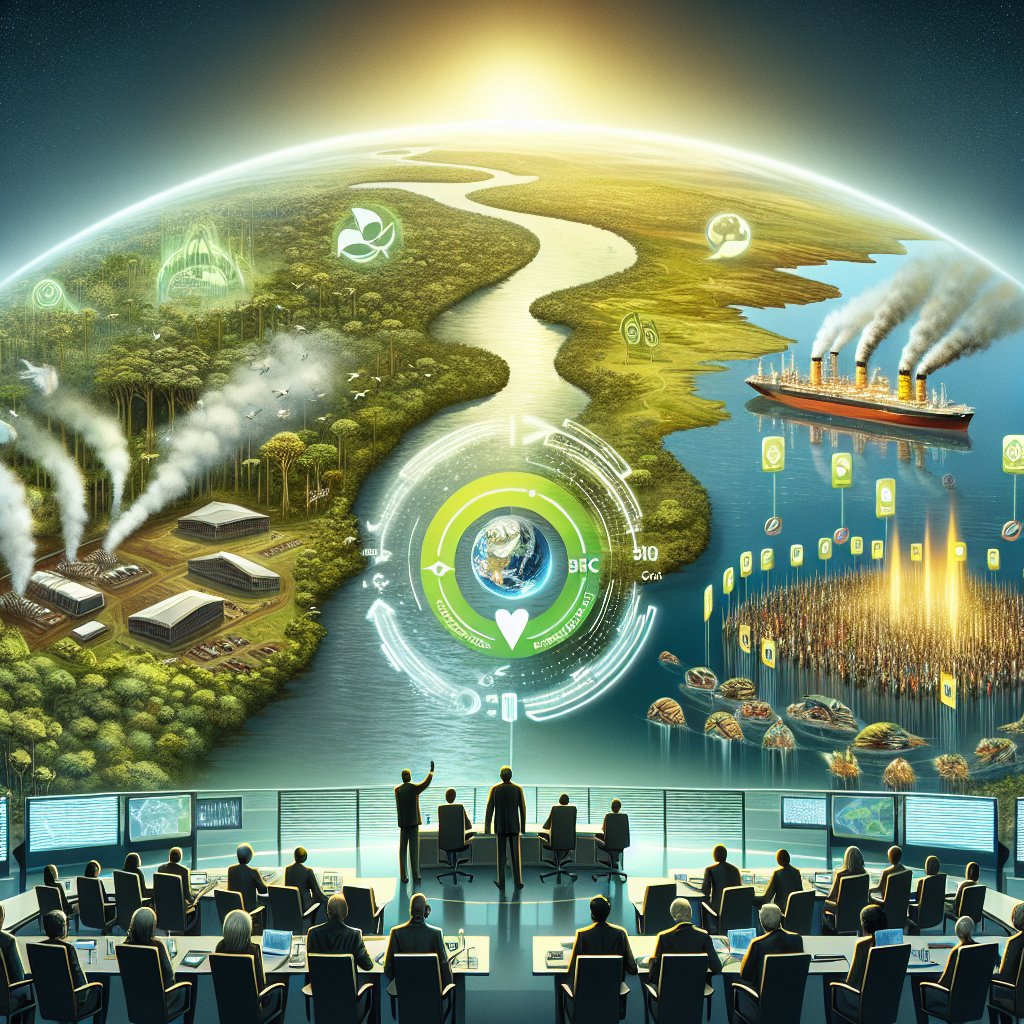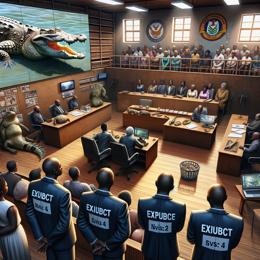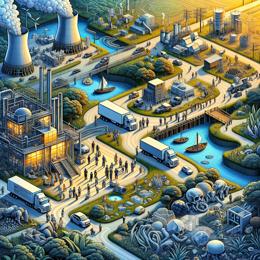Image created by AI
Greenpeace Africa Advocates for Environment and Community Rights in DRC
Greenpeace Africa (GPAF) has capped off a significant advocacy mission in the Democratic Republic of the Congo focused on engaging key stakeholders to address the multifaceted environmental challenges the country is grappling with. The visit, conducted from August 12th to 17th, 2024, built upon the momentum from the recent CSOs Conference on the Congo Basin held in Cameroon, which highlighted the need for recognizing Indigenous Peoples' rights and ensuring polluters contribute to African countries' climate actions.
The DRC's rich biodiversity, including expansive rainforests essential for carbon sequestration, faces substantial threats from illegal logging, mining, pollution, and the exacerbating effects of climate change. These factors not only imperil ecological health but also the livelihoods of millions.
Greenpeace Africa, through its Climate Justice Movement launched in DRC in March 2024, sought to empower civil society organizations to champion community rights and spearhead conservation-driven initiatives. This initiative plays a crucial role in bringing oft-neglected voices to the forefront of environmental governance, aiming to effectuate change that is socially just and ecologically sound.
GPAF's itinerary included meetings with vital government officials. Notably, the discussions with Hydrocarbons Minister Aimé Molendo Sakombi and Vice Minister Wivine Moleka centered on the commendable decision not to auction oil blocks in protected areas. Greenpeace Africa offered to assist in accurately mapping these zones and advocated for DRC's eligibility for climate finance to foster sustainable growth. However, despite generally constructive engagement, some tensions were apparent with other members of the government critiquing GPAF's approaches.
In progressing toward environmental sustainability, Greenpeace Africa promotes the importance of transitioning from fossil fuel dependencies to a green economy enriched by renewable energy sources. Establishing such a roadmap is seen as pivotal by GPAF, ensuring a balance between economic development and ecological conservation.
The commitment of all sectoral actors, including the government, civil societies, indigenous communities, and global citizens, are viewed as integral by Greenpeace Africa in overcoming the DRC's ecological and socioeconomic hurdles. The organization firmly believes in nurturing a collaborative climate in which both humanity and nature thrive symbiotically.










